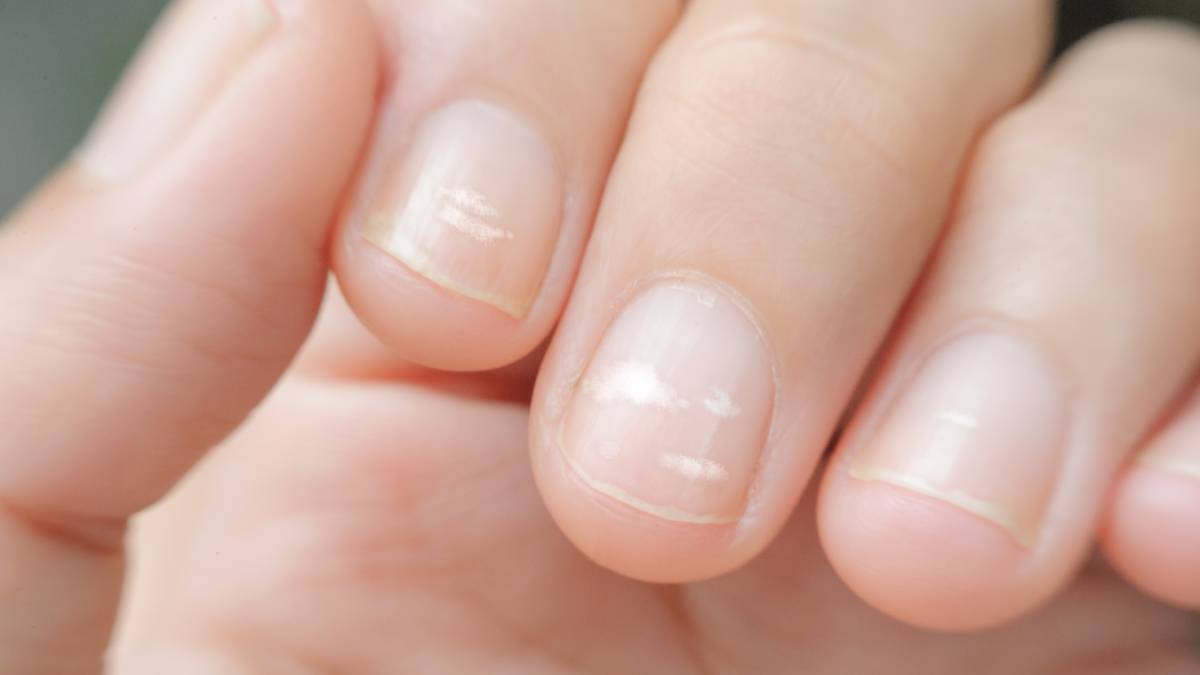As we age, we often become more attuned to the messages our bodies send us. Aches and pains may prompt us to slow down or seek medical advice, but did you know that your fingernails can also be a treasure trove of information about your health? Today, we’re diving into the fascinating world of what your nails can reveal.
Your fingernails aren’t just for aesthetic purposes or opening a can of beans—they reflect your overall health. Changes in their appearance can be early warning signs of various medical conditions. Let’s explore seven surprising health secrets that might be hiding right under your fingertips.
You May Like
1. The curious case of clubbing
Clubbing of the nails is a condition where the fingertips become enlarged, and the nails curve around the fingertips. It’s a rare but significant sign that could indicate low oxygen levels in the blood and is often associated with lung issues. While clubbing is most commonly linked to lung cancer, it can also point to heart disease, coeliac disease, or liver cirrhosis. If you notice this change, it’s crucial to consult a healthcare professional promptly.
2. White marks and what they mean
Those little white flecks on your nails, known as leukonychia, are often dismissed as signs of calcium deficiency. However, they’re usually the result of minor trauma to the nail. In some cases, though, white discolouration can indicate more serious conditions such as heavy metal poisoning, psoriasis, or even systemic diseases like kidney or liver disorders. If you notice persistent white marks or discolouration, it’s worth discussing with your doctor.
3. Blue nails and breathlessness
If your nails take on a blue hue, it could be a sign that your body isn’t getting enough oxygen. This symptom should not be ignored, as it could indicate serious heart or lung diseases, such as emphysema. Blue nails warrant immediate medical attention to rule out these critical conditions.
4. Dark lines and skin cancer
Dark lines beneath the nail, especially if they appear suddenly, could be a sign of subungual melanoma, a rare form of skin cancer. While trauma can also cause dark lines, it’s essential to get any new or suspicious nail markings evaluated by a dermatologist.
5. Splinter haemorrhages and underlying issues
Those tiny red or brown streaks that look like splinters under the nail are called splinter haemorrhages. They can be a sign of vasculitis, an inflammation of the blood vessels, which in some cases is related to heart valve infections. If these streaks don’t heal or keep appearing, seek medical advice.
6. Spoon nails and anaemia
Koilonychia, or spoon nails, is a condition where the nails are concave and can hold a drop of water. This can be a sign of iron-deficiency anaemia or other conditions like coeliac disease. If your nails resemble little spoons, it’s time to talk to your doctor about potential anaemia.
7. Ridges and nutritional deficiencies
Horizontal ridges, known as Beau’s lines, can indicate zinc deficiency or other systemic issues like diabetes or peripheral vascular disease. Brittle nails might suggest hypothyroidism or a lack of vitamin B7. These changes can also be a clue to your nutritional status and should be evaluated if they are persistent.
In some instances, changes in the nails may be due to lifestyle factors rather than underlying health issues. For example, peeling nails, also known as onychoschizia, happen when thin layers of the nail separate from the free edge and peel back. This condition can be caused by excessive hand washing, nail dryness, and the use of acrylics or other nail polishes.
While it’s easy to overlook your nails, they can be an accessible and non-invasive way to gauge your health. Changes in nail shape, colour, or texture that are persistent or unexplained should always be taken seriously. Remember, your nails are like a map to your body’s health, and learning to read them can be incredibly insightful.
Have you ever noticed any changes in your nails that led to a health discovery? What unusual nail marks have you encountered, and what did they reveal? Share your experiences and thoughts in the comments below—let’s keep the conversation going on the surprising health secrets right under your fingertips!
The information provided in this article is for general informational purposes only and should not be considered medical advice. Changes in nail appearance can sometimes indicate underlying health conditions, but only a healthcare professional can provide an accurate diagnosis. If you notice any concerning symptoms, please consult your doctor or healthcare provider for a thorough evaluation.
Also read: The truth behind gut health trends everyone is talking about

